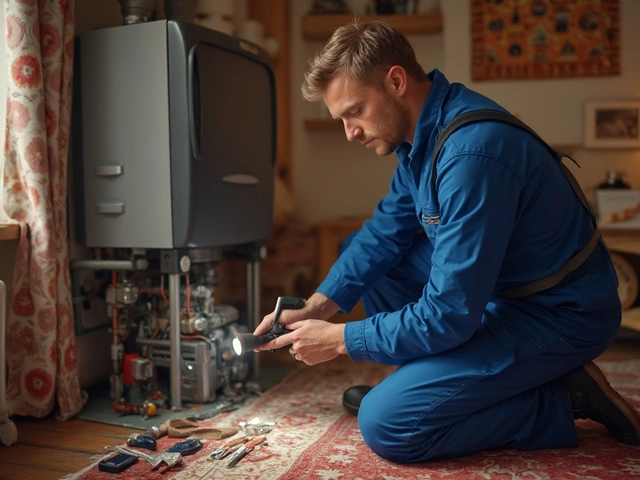If you’ve ever noticed a thin film on your bathroom glass or a drop in hot‑water pressure, a dirty tank could be the cause. Flushing the water heater clears out sediment, improves efficiency, and can add years to the unit’s life. The good news is you don’t need a professional for a basic flush – a few tools and a bit of time are enough.
Every time hot water is drawn, minerals from the supply water settle at the bottom of the tank. Over time those minerals turn into a gritty layer that acts like an insulator. When the heating element has to work through that layer, it takes longer to heat water and uses more electricity or gas. You’ll see higher energy bills and slower recovery times. In severe cases the sediment can crack the tank, leading to leaks that cost a lot to fix.
Besides energy savings, a clean tank helps keep water quality high. Sediment can stir up rust or copper, giving your water a metallic taste or smell. Regular flushing keeps those particles out of your taps and appliances, extending the life of everything that uses hot water.
Most experts recommend flushing a residential water heater once a year. If you live in an area with hard water – meaning high mineral content – you might need to do it every six months. On the other hand, if you have a soft‑water system or a tankless model, an annual flush is usually enough.
Watch for signs that you’re overdue: cloudy water, reduced hot‑water flow, strange noises (like rumbling) from the tank, or a sudden jump in your energy bill. Any of those clues mean it’s time to pull the plug and clean out the tank.
Here’s a quick checklist to decide the schedule:
Even if you’re not sure about water hardness, a yearly flush is a safe baseline. The process takes about 30 minutes, so it’s a small investment for big savings.
Ready to do it yourself? You’ll need a garden hose, a bucket, a screwdriver (for older models), and a plain old wrench. Turn off the power or gas, let the water cool, attach the hose to the drain valve, open the valve, and let the water run until it looks clear. Close the valve, refill the tank, and turn the power back on. Test the hot water after a few minutes to make sure everything works.
If you run into rusted valves, stuck drains, or confusing wiring, don’t force it – call a local pro. Bognor Regis Appliance Repair Experts can handle the job quickly and safely, saving you time and peace of mind.
In short, treat your water heater like any other home appliance: a little regular care goes a long way. Flush it once a year, twice if you have hard water, and you’ll enjoy steady hot water, lower bills, and a longer‑lasting tank. Happy flushing!

Learn how often to flush your water heater, why it matters, signs it's time, mistakes to avoid, and simple steps to, maintain hot water at home.

Regular boiler servicing is crucial to ensure safety and efficiency in home heating systems. A comprehensive service involves thorough inspections and cleaning, enhancing performance and extending the lifespan of the unit. Areas covered include checking the burner, inspecting the flue, and ensuring controls work correctly. Routine servicing helps prevent breakdowns and identifies potential issues early. Understanding what's involved can help homeowners make informed decisions and maintain reliable heating.

Got an appliance that isn’t working right? The way you describe it can make or break your service experience. This article breaks down how to explain what’s wrong with your appliance, what details really matter, and how to avoid confusion. Learn which features, model numbers, and problem signs technicians care about. Save time and frustration on your next repair call.

Boilers, integral to any home heating system, don't last forever. Understanding their lifespan can help you plan timely maintenance and replacements to ensure efficient heating. In this article, we explore how long you can expect your boiler to serve you, what affects its longevity, and how regular care can make a difference. By understanding these aspects, homeowners can make informed decisions regarding their heating needs and avoid unexpected failures.

Learn the typical cost of repairing a gas oven igniter, compare DIY vs professional pricing, and discover tips to keep your repair bill low.

Learn the warning signs of a failing water heater and get practical tips for repair and maintenance to prevent costly breakdowns and keep your hot water system running safely.